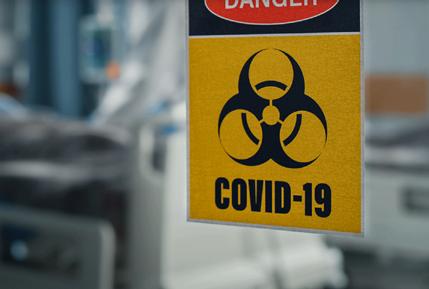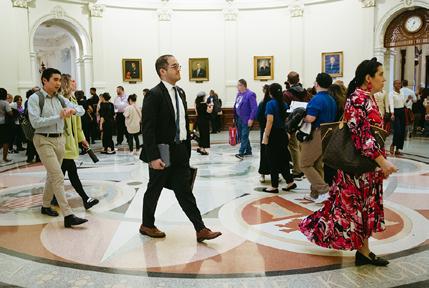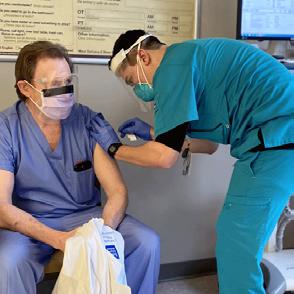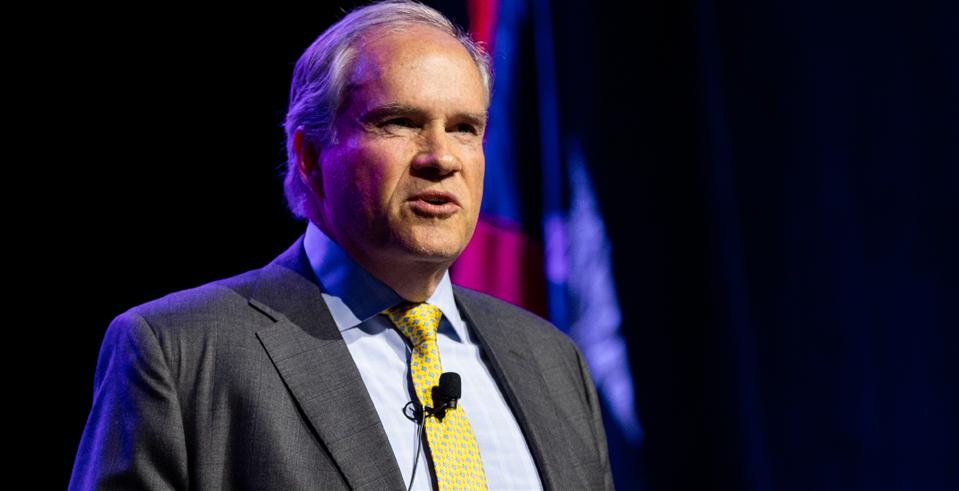2023 Q2 IN REVIEW



























Over nearly five full months, THA advanced policy that furthered hospitals and health care across Texas, while absorbing relentless fire trained on hospitals at the same time.
In short, during the just-concluded regular session of the Texas Legislature, THA excelled at both defense and offense. And if the already-announced extra sessions require “special” teams to address hospital-related topics, THA and its members will be ready to take the field again.

Here’s a rundown of some of what THA accomplished – and beat back – between mid-January and the Legislature’s adjournment on Monday, with a video of a THA member call last week that offers more insight on what THA and its hospitals navigated during the winter and spring.
Lawmakers were receptive to many of THA’s top-line priorities, including its push to bolster sagging hospital workforce numbers. Two workforce retention bills aimed at protecting
hospital personnel – Senate Bills 240 and 840 – have already been signed into law by Gov. Greg Abbott.
SB 240 requires health care facilities to implement a workplace violence prevention policy, maintain a workplace violence committee and provide workplace violence training at least annually. It also prohibits retaliation or discipline for reporting a violent incident in good faith. SB 840 enhances the penalty for assaulting a hospital worker on hospital property, elevating such an attack to a third-degree felony. Also on the topic of workforce, the Legislature passed Senate Bill 25, a wide-ranging boost for postsecondary nursing education, including scholarships and assistance for loan repayment. That bill is now at the governor’s desk.
Other major wins in standalone legislation included House Bill 1890, which allows Texas hospitals to continue to use the federal hospital-at-home program that helped with surge capacity management during COVID-19; House Bill 12, which would extend postpartum Medicaid coverage for new moms from two months to one year; and House Bill 49, a THAnegotiated measure to increase transparency of state findings
in hospital investigations. Gov. Abbott has already signed the hospital-at-home and investigation bills into law, and has HB 12 on his desk for consideration.
THA’s advocacy to bolster health care funding in the state budget for 2024-25 also bore fruit. Crucial dollar allocations included full funding for the state Medicaid program in the next biennium; a tripling of the Medicaid rural labor and delivery add-on payment; new funding for inpatient psychiatric beds and large funding bumps for both the Nursing Shortage Reduction Fund and the Loan Repayment Program for Mental Health Professionals. The mental health loan repayment program, funded at $2 million in the current budget, will receive $28 million in 2024-25.
Insurer-supported legislation that threatened hospital business and operational interests required fervent, grassroots efforts to defeat – and THA and its hospitals answered the call.
From the beginning of session, THA was already working against a widespread and misinformed perception that hospitals were financially thriving as the COVID-19 pandemic wound down, despite research that clearly showed otherwise. Bills to ban hospital outpatient payments – known commonly as “facility fees” – and to institute government rate-setting would have spelled disaster for hospitals if they had made it into law. But with THA releasing multiple advocacy alerts to stop these dangerous measures, and members responding by sending thousands of messages to lawmakers, the worst ramifications this session could’ve had for hospitals won’t be realized.
Not every THA-opposed measure was stopped in its tracks, though. Senate Bill 490, which requires hospitals and other facilities to provide itemized bills to patients within 30 days of receiving payment from a third party and before collecting payment after care is provided, became law this week.
And on the flip side, THA didn’t see all of its top priorities reach passage. For example, the final budget didn’t include hospitals’ request for a state waiver from the federal institutions of mental disease exclusion, a 15-day limit on most adult inpatient behavioral health stays in Medicaid. A bill clarifying the state’s prudent-layperson standard for emergency care – a THA priority for multiple sessions now – also didn’t make it to the finish line.
Gov. Abbott has already called the first of what he said would be multiple special sessions. THA will monitor these sessions for any legislative measures that affect hospitals.
On May 25, just a few days before this week’s adjournment, THA President/CEO John Hawkins and THA’s lobby, policy and legal teams gave an overview of what THA had accomplished –and, at the time, was still working to finalize – during THA’s End of Session Member Call. You can listen to the full call below for information on the wins and challenges described above, and much more on THA’s activity during the regular session.
For a complete written postmortem recap and analysis, stay tuned for THA’s End of Session Report, scheduled to be released in mid-June.
For 140 days, the Texas Hospital Association spoke out, dug in and fought – for good health care policy in Texas, and to short-circuit policies that would have impeded access to care and jeopardize many hospitals’ very existence.

After walking miles of Capitol corridors, and hours upon hours of meetings, negotiations and billwatching, the 2023 regular session of the Texas Legislature was another successful one for THA and its members, as detailed in THA’s newest end-of-session report, Health Care and the 88th Texas Legislature: Outcomes for Texas Hospitals.
In the end-of-session report, you’ll learn more about THA’s victories during this session, including:
• Key workforce wins, including extensive gains in health care workforce funding, and bills that mandate annual workplace violence training at all health care facilities and enhance the penalty for assaulting a hospital worker to a third-degree felony;
• Other crucial funding wins in the state budget for 2024-25, including full funding of Medicaid and increases that will aid behavioral health care and rural and maternal care, such as a tripling of the current Medicaid add-on payment for rural labor and delivery;
• Expanded Medicaid coverage, in the form of an extension for postpartum coverage for new mothers from two months of continuous coverage to 12 months;
• Allowing hospitals to continue the successful federal hospital-at-home program that helped contain surges during the COVID-19 pandemic; and
• A landmark change to the state’s advance directive law, the result of eight months of stakeholder negotiations.
Just as important, however, was THA’s successful pushback against a wide-ranging attack on hospitals that would have severely jeopardized many Texans’ ability to receive care – and, at the same time, forced already-struggling hospitals and clinics into further financial hardship or closure. The report details THA’s victorious fights against legislation to ban hospital outpatient payments and institute government rate-setting.
The report also contains THA President/CEO John Hawkins’ impressions of what just transpired in Austin, and lets THA’s members know what they can do going forward on the rhetorical fronts that will shape the climate of the Legislature’s 2025 session.

Each week during the 2023 session of the Texas Legislature, The Scope’s Cap Recap reviewed the previous week’s most hospital-relevant news under the Pink Dome in Austin.
 Written by Joey Berlin
Written by Joey Berlin
Hospitals Stay Intact, Score Wins
As Regular Session Wraps
May 31, 2023
Abbott Signs THA Workplace Violence Bill Into Law
May 22, 2023
Bad Bills Stopped as Session Hits Home Stretch
May 15, 2023
Senate Votes Produce Mixed Bag for Hospitals
May 1, 2023
Continue Reading
Continue Reading
Continue Reading
Workplace Violence Bill Reaches Precipice of Becoming Law
May 8, 2023
Continue Reading
Postpartum Medicaid Coverage Passes House
April 24, 2023
Continue Reading
Continuing the Outpatient Payment Fight
April 17, 2023
Continue Reading
Continue Reading

Contrary to popular belief, hospitals did not get rich off the pandemic, in fact, quite the opposite happened and hospitals are still recovering.

Facilities support patients having easily accessible information to make decisions on care.
Don’t flatline Texas health care. Will Texas protect its patients?

Dismantling hospital services does nothing for patients or the price of health care. In fact, it hurts everyone.

Ten pieces of important legislation driving hospitals’ agenda midway through session.

For over 100 years, Hospital Week has recognized the tremendous impact hospitals and health systems have on patients, families and communities. This week, THA is honoring its members by highlighting some of our favorite heartwarming stories from Texas hospitals from the past year.
Written By: Amy RiosSince its founding in 1930, THA joined the American Hospital Association and other state hospital associations to recognize our hospitals, health care workers and the tremendous roles they play in our communities.
The genesis of Hospital Week began in 1921, when a group of medical professionals wanted to raise public awareness about the important role of hospitals. This recognition came amid a flurry of medical triumphs, including the discovery of insulin, the introduction of the diphtheria and tuberculosis vaccines and the discovery of the B1 vitamin. On May 12, 1921 –Florence Nightingale’s birthday–the first Hospital Day was celebrated.
In 1953, the AHA expanded Hospital Day into Hospital Week to promote the importance of hospitals and the services they provide to their communities.
Here are some of our favorite stories from Texas hospitals over the past year.


On Jan. 23, 2023, at Cook Children’s Medical Center in Fort Worth, Texas, a team of 25 medical professionals performed its first separation surgery of conjoined twin sisters AmieLynn and JamieLynn Rae Finley. The 11-hour surgery was performed by an expansive medical team, including three anesthesiologists, four pediatric surgeons, two plastic surgeons and 18 other clinical professionals who made the surgery a success.
On April 7, three weeks after JamieLynn was discharged, AmieLynn left the hospital with her parents, Amanda and James Finley. Their care team hopes they will grow up healthy, happy and independent with their amazing family.

Last month, the Tarrant County Commissioners Court officially proclaimed Jan. 23, 2023 as JamieLynn and AmieLynn Finley Day. The Commissioners Court also created a Congratulatory Resolution for Cook Children's Medical Center to recognize teams of nursing and medical professionals for their continued efforts and critical care for the youngest members of our community. Read more about JamieLynn and AmieLynn’s long journey home here.
In March 2023, a team of Houston Methodist doctors and health care providers traveled to Ivano-Frankivsk, a city in the northwest region of Ukraine to provide care to injured soldiers and civilians and train Ukrainian surgeons. While Ukraine has a robust health care system, it is being challenged not just by large volumes of patients but also by the incredibly complex nature of the injuries.
Between March 25 and April 3, the 13-person Houston Methodist team performed 112 procedures on 30 patients, accounting for almost 100 hours of time in surgery. Read more about Houston Methodist’s work in Ukraine here.



Before her retirement, Elaine Kuper devoted 61 years of volunteer service at Texas Children’s Hospital, making her the longestserving volunteer at the largest pediatric hospital in the U.S.

According to a January 2023 article in USA Today, Kuper, who turned 100 in November 2022, began volunteering at Texas Children’s Hospital just two weeks after it opened in February 1954. Her level of dedication prompted her to take Spanish lessons so she could better communicate with Hispanic and Latino families in the hospital.


During her 61 years of volunteering, Elaine volunteered at the hospital’s snack bar, information desk and later assisted with mail delivery and tours of the facility.
On Jan. 31, 2023, Jaclyn Pellicotte returned to UMC El Paso where she received life-saving care five years prior for a traumatic brain injury she incurred when a Ford F-150 truck hit her car head-on. She was not expected to survive her first night at UMC, but 16 surgeries later, she was able to walk the halls of UMC.
Jaclyn spent two months at UMC, treated by nurses like Sarah Herrera, who at the time of Jaclyn’s injury, worked as the emergency room manager. Five years later, Herrera still remembers treating Jaclyn when she came back for a visit to thank the health care workers who saved her life.

Dioni Lopez, RN, was on her way to work one morning when the highway traffic came to a sudden stop. She worried briefly about being late for her 8:30 a.m. meeting, then she saw a man lying in the roadway. The man, a motorcyclist, appeared to have hit the back of a box truck. He’d been thrown off his bike and onto the side of the road. He was bleeding and unconscious.

Some people had gotten out of their cars, but no one was helping the motorcyclist. Lopez, an oncology nurse at the Cancer Center at Memorial Hermann Northeast Hospital, pulled her car into the median, got out and ran. She started to administer CPR. After two sets of chest compressions, the man’s stomach made a wave motion, and he began to breathe. Soon after, an ambulance arrived and took him to another hospital. Read more about Dioni Lopez here.
Alexa and Brianna Rabagos were delivered at 28 weeks and promptly admitted to the Driscoll Children’s Hospital NICU where they spent four months fighting for their lives.


That’s just the beginning of the Rabagos’ journey to Driscoll. As they grew older, the twins decided they wanted nursing career and dedicate their careers to caring for premature babies. Now, Alexa and Brianna work in the Pediatric Intensive Care Unit (PICU) caring for babies and offering comfort and encouragement to new parents. Read more about the Rabagos twins here.

In honor of Asian American Pacific Islander Heritage Month, THA highlights four AAPI leaders in Texas hospitals.
 Written by Julia Mann
Written by Julia Mann

In January, Mayah Zamora, a Robb Elementary survivor who was hospitalized at University Health for 66 days, returned to meet the blood donors whose donations saved her life and reunited with trauma surgeon Dr. Ronald Stewart, chair of surgery at University Hospital. During her visit, Zamora encouraged others to consider donating blood with organizations like South Texas Blood & Tissue, which hosted several emergency blood drives in the wake of the Robb Elementary school shooting.
Read more about how South Texas hospitals banded together after the tragedy in Uvalde here.

From all of us at THA, thank you and Happy Hospital Week!
Each year in the month of May we honor Asian American Pacific Islander (AAPI) Heritage Month. Although AAPIs are a minority group, they make up a large portion of the Texas population. AAPIs are the fastest growing racial group in Texas, with more than 1.9 million people across the state – the third largest AAPI population in the U.S. According to the Texas Demographic Center, the Texas AAPI population has projected an almost 61% growth by 2050.
With the AAPI community rapidly growing in Texas, it’s important to hear the experiences of AAPIs and ensure they have representation in all industries. In honor of AAPI Heritage Month, THA sat down for Q&As with four AAPI leaders in Texas hospitals. Join us in celebrating the following AAPI hospital leaders:

What inspired you to pursue a career in health care?
I was born with a congenital heart defect. At a very young age, my days were filled with visits to doctors’ offices and hospitals, and I underwent treatment and surgeries that quite literally saved my life. Those experiences imprinted upon me the profound impact that high-quality care can have on a person’s life. Even as a child, however, I also understood the inequity that existed in health care, and I knew that not all children had the same access to the lifesaving care I had received. That realization ignited a fire within me, and I knew that I wanted to dedicate my life’s work to addressing those problems and being part of the solution. Helping engineer a system where every person, without exception, can readily obtain the care they need to live the healthiest life possible continues to be what excites me the most about my role as COO at Memorial Hermann.
How has being a part of the AAPI community impacted your life or your career?
Being a member of the AAPI community has profoundly shaped both my life and my career by providing unique and cherished experiences, values and perspectives. On a personal level, being part of the AAPI community gives me a sense of identity that spans culture, language and tradition. It has fostered not only a
strong appreciation for cultural diversity, but also a broader understanding of different people and perspectives.
Growing up as part of this community was not without its challenges, however, and I personally have had to overcome barriers and stereotypes that unfortunately continue to persist today. That said, these experiences have instilled in me a commitment to promoting inclusivity for all, as well as a sense of resilience, which has served me well both personally and professionally.
What does being an AAPI leader in your hospital and in health care mean to you?

I take my responsibilities as Chief Operating Officer for Houston’s largest not-for-profit health system very seriously. The health and safety of our workforce, our patients and our community members are truly at the heart of every decision we make. Being a leader at Memorial Hermann means bringing to life our commitment to service excellence and the consistent delivery of compassionate, personalized care.
I am also a leader who represents and advocates for the AAPI community, working to address disparities in access to care and to promote cultural understanding among colleagues and peers. Many patients in the AAPI community face challenges in the health care setting, including language barriers or cultural differences, and I’m proud to be part of an organization that is working systematically to address these issues and ensure that all those we serve have access to the same level of high-quality care.
What impact do you hope your work has within your community?
I hope that my work at Memorial Hermann is helping to advance our vision to create healthier communities, now and for generations to come. We are working to redesign how care is delivered through innovative new strategies to improve health for all the richly diverse populations we serve.
As part of my role as COO, also oversee our system’s Community Benefit Corporation, which works to help families in our communities stay healthier by providing accessible preventative care, resources and support. For more than 115 years, Memorial Hermann’s focus has been improving health for our communities, contributing nearly $500 million annually through school-based health centers and other community benefit programs. We know these programs are having a measurable, positive impact across Greater Houston, including for members of the AAPI community, and I am immensely proud to be a part of this work.
Finally, on a more personal note, I hope my work serves as inspiration, not just to others in the AAPI community but also to other women leaders everywhere. As someone who credits mentors for much of my own success, I’m proud to pay it forward by serving as a mentor to future women leaders within our organization and beyond, with the goal of having a positive impact on both their personal lives and professional careers.
Joseph Chang, MD Chief Medical Officer, Parkland Health
What inspired you to pursue a career in health care?
This is actually a really funny question. Bucking the usual Asian family stereotype, I did NOT want to be a doctor. (I was very good at math, though! I suppose we can't buck all of our stereotypes!) That said, after two years at MIT, I discovered that I actually hated lab research and that the last thing I wanted to do the rest of my life was sit in a chemistry lab and try to discover something! I must admit, I was a bit lost that summer after sophomore year. I went back home to Taiwan and volunteered at a children's hospital. I loved kids, and it was something to do during the day when my friends were all working. spent hours with families, during and after surgeries. Their worry and anxiety turned into relief and tears of joy. Are you kidding me? could make that kind of difference in someone's life? That was it, I was hooked.
How has being a part of the AAPI community impacted your life or your career?

Growing up in Texas, never really thought about being Asian. Whether in small town Texas (Beaumont in the 1980's) or suburb Texas (Plano and Sugar Land), I always saw myself as just another kid. To me, being Asian was just...well, me. To be sure, I was always surrounded by folks that didn't look like me, but I truly don't think it ever dawned on me that I was different in any meaningful way. I think the biggest thing I saw in the
Asian community was this belief that all of us would rise and fall by the virtue of our effort and work ethic. I believed to my core that if I put in the work, I would get there - wherever "there" was! As I got older and hopefully, wiser, saw that in fact, the Asian way was very much one of family and community. We would all celebrate our successes; a win for one was a win for all. Those two things - effort and community - formed the foundation of my development.
What does being an AAPI leader in your hospital and in health care me to you?
As I've mentioned, I never thought of being Asian as being in anyway special or different. Indeed, Asians in health care are plentiful and respected. According to the last census, about 6% of Americans are Asian, but the American Medical Association states that over 20% of physicians are Asian. A couple of years ago, though, I was recognized by the Chinese Chamber of Commerce in Dallas as a leader in the community. The outpouring of support from the Asian community was truly moving and humbling. What does this mean to me? think it means that I have a huge responsibility to represent this community in a way that they can be proud of. Similarly, feel a huge responsibility to be an individual that the AAPI community at Parkland can be proud of. I hope that I continue to do that in the days to come.
What impact do you hope your work has within your community?
I have never looked at myself as a community leader. I've always just tried to serve in whatever role I was in, nothing more. To be honest, all of the attention that COVID brought me is still overwhelming and a bit embarrassing. I am no one special. I really just try to honor God for the blessings He has granted me, and serve in a way that pleases Him. Though cliche, I do truly hope that I will leave DFW a better place than when started here. I hope that those who see me see a man who really just wants his family and God to be proud of all he has done, and in by striving for that, has made some people's lives better.

What inspired you to pursue a career in health care?

I have always liked understanding how things work - from the human body to how things are made. That’s what led me to pursue a degree in biomedical engineering. My interest in system level design, coupled with my mom instilling in me a strong belief that we have a duty to be of service to others, led me to public health and, ultimately, choosing a career in health care delivery.
How has being a part of the AAPI community impacted your life or your career?
Growing up in a small town in the Midwest, was aware that my traditions were different from my peers and neighbors from a young age. My lunches didn’t resemble my classmates and we celebrated holidays that weren’t on any school calendar. Still, I was always proud of my heritage and enjoyed sharing my culture (especially food!) with others. That experience made me keenly aware that we all have a unique story and that learning about an individual’s background, acknowledging their values and honoring their preferences can be impactful and empowering. It definitely was for me and is a part of my core values, both personally and professionally.
What does being an AAPI leader in your hospital and in health care mean to you?


The first word that comes to mind is belonging. At Texas Health, we believe that being an integrated part of the community, and not just in a community is how we improve well-being and achieve health equity. That’s why we don’t have separate “diversity initiatives” but a holistic, integrated plan that provides employees, community members and other like-minded organizations opportunities to drive community impact with us collectively.
“Belonging” also rings true because we have a responsibility to create an environment where every individual – whether seeking care or providing services to those individuals – knows that they belong. A simple but meaningful example could be offering food options that are familiar and comforting to the specific set of cultures represented at each facility. I’ve been very fortunate to have leaders that have been intentional and thoughtful in their actions to create a sense of belonging for me. It’s my responsibility to pay that forward.
What impact do you hope your work has within your community?
I know we will have had a positive impact when it passes my “grandma test.” Navigating the health care system – specifically being able to understand options and articulate care decisions and preferences can be daunting. My grandmother immigrated to this country when she was in her thirties and worked in a garment factory until her seventies. When our care processes -- clinical, social and administrative – are easily accessible and understood by my grandma (and yours as well!), then I know we will have made progress. These intentionally designed internal processes, combined with an integrated community plan, could improve health and well-being for all.
THA members making headlines for their leadership efforts THA’s Newsmakers highlights leaders from THA member hospitals and health systems making headlines in Texas health care. Please join in congratulating our Newsmakers.
Written by Julia MannAPRIL
Ana Almeda, M.D. Driscoll Children's Hospital Rio Grande Valley


Sean Dardeau Texoma Medical Center
MAY
Anna Gore, MSN, RN Christus Santa Rosa Hospital




Katie Perkins St. David's Medical Center
JUNE
Chad M. Collins, MHA, FACHE, CHFP Texas Health Presbyterian Hospital Plano






Ben Coogan Medical City Plano
Nathan Deal, M.D. HCA Houston Healthcare Clear Lake and HCA Houston Healthcare Mainland
Arianne Dowdell Houston Methodist
Tim Rye Peterson Health
Eva Slavcheva, MD St. David's Georgetown Hospital
Chris York, FACHE Texas Health Presbyterian Hospital Dallas

Sun Park Tenet Healthcare
Jochen Reiser, MD, PhD The University of Texas Medical Branch in Galveston
Theresa Meadows Cook Children’s Health Care SystemHospitals pushing for multiple measures to curb workplace violence and accompanying attrition.
 Written by Joey Berlin
Written by Joey Berlin
Workplace violence can change a hospital worker’s life in a horrifying flash – whether that moment involves a gunshot or even an unarmed violent outburst. Hospital workers will often rebound from such incidents with severe emotional trauma. They may even decide that rebound won’t include continuing their work in the same setting.
Suzanne Magee, the emergency department director at Titus Regional Medical Center in Mt. Pleasant, saw it happen mere weeks ago, when an incident involving a patient caught her and her ED staff completely by surprise. It happened without the buildup of anger or frustration that often warns hospital workers that a person is on the precipice of violent action.
“Usually you can see people escalate, and so you have the opportunity to intervene, to deescalate them, to prevent the violence. [With] this person, that’s not how it happened,” Magee said. “This person just jumped up and went after every human being that they saw in the emergency department –actually got a hold of several of my staff members before we were able to stop it.
“The next day, I got an email from one of my nurses, and it was so sad. Because basically, what she was telling me was, ‘I want to orient to case management, want to orient to informatics and I want to orient to billing and coding.’ Which basically means, ‘I want anything except patient care. want away from the bedside.’ And this was a young nurse, and really a good one.”
At a time when many factors are driving a critical shortage in Texas’ hospital workforce, the Texas Hospital Association is

hoping the Texas Legislature will sign off on steps to curb the violence that has increasingly plagued health care facilities since the start of the COVID-19 pandemic. As Magee noted moments later, “Nurses leaving the bedside is really not something that we can afford at all right now. Especially experienced, good nurses. We really can’t afford to lose any more, because there’s nobody out there to replace them right now.”
Bills the Legislature has in front of it would mandate workplace violence prevention plans and committees, increase the penalties for assaulting a hospital worker and prohibit parolees from hospital visitation without express approval from their parole officer, among other steps. During this session, THA is letting lawmakers know about the acute need for ensuring hospitals are safer places to work.
Violent incidents at hospitals have increased markedly in the past few years, as a recent THA member survey showed –contributing to the attrition that has so many facilities struggling to field adequate staff. The survey showed 98% of Texas hospitals have experienced either the same or increased workplace violence since the start of the pandemic, including 61% that reported violence severity has increased. Nurses, the survey found, have borne the brunt of that uptick.
Survey respondents have overwhelmingly done their part to undertake workplace violence prevention efforts, with 89% of hospitals reporting that they did so. But THA knows hospitals
can’t do it on their own – they need backstopping from government action. That’s why workplace violence became a central issue for THA during the 2023 session of the Legislature, which is considering and/or advancing several pieces of legislation to make hospitals safer.
Central to THA’s safer-hospitals agenda is making sure all facilities have personnel dedicated to the cause. Senate Bill 240 by Sen. Donna Campbell, MD (R-New Braunfels) and its companion, House Bill 112 by Rep. Donna Howard (D-Austin) would require hospitals to maintain a workplace violence prevention committee and implement individualized training on prevention at least annually. Committees would have to develop a prevention plan and develop a comprehensive definition of workplace violence. SB 240/HB 112 would also attempt to remove any reluctance to report workplace violence, prohibiting discipline or retaliation for making a good-faith report of such an incident.
Magee believes that bill “will help define the problem,” adding that most violent incidents in emergency departments don’t get reported at all.
“When someone jumps up out of the bed and screams and yells at a nurse and intimidates them and makes them fearful, even if they don’t touch them, it impacts that nurse’s ability to work the rest of that day,” she said. “So it impacts everyone’s care, not just that one individual. But I think that we have to encourage people to report it. And it needs to be clear that violence is not just a physical act – that someone who’s threatening you, or someone who’s screaming and cussing at you, that is workplace violence as well.
“Whether that’s coming from a patient, a family member, a visitor or another staff person, it needs to be reported so that we clearly understand what problem we actually have.”
SB 240 has already passed the Senate and at this writing was expected to pass today in the House of Representatives, which would send it to Gov. Greg Abbott’s desk for his signature.
One of the most disturbing hospital violence incidents in recent memory happened in Texas last October, when two workers were killed in a shooting at Methodist Hospital in Dallas. The man now charged with capital murder in the deaths was the father of a child newly born at the hospital and was out of prison on parole. Although he was wearing an ankle monitor at the time of the shooting, he had cut one off earlier in the year, according to news reports.
That tragedy helped spur several other pieces of legislation to address violent hospital incidents, supported by both THA and Methodist Hospital. Those bills, all filed by Rep. Rafael Anchía (D-Dallas), include:
• House Bill 3547 to prohibit parolees from hospital visitation unless a supervising parole officer approves the visit beforehand;
• House Bill 3548 to make it a third-degree felony to assault any hospital worker performing their duties; and
• House Bill 3549, which makes it a felony for parolees to remove their required electronic monitoring devices, and upon conviction to serve their sentence for that offense immediately after completing the sentence for which they were originally on parole.
THA Assistant General Counsel Heather De La Garza, J.D., testified in favor of both HB 3548 and a companion measure, House Bill 2189 by Rep. Julie Johnson (D-Farmers Branch), in March before the House Committee on Criminal Jurisprudence.
Hospital advocates are also keeping their eye out for legislation that might set back hospital violence prevention efforts. Earlier this month, THA testified against House Bill 2960 by Rep. Briscoe Cain (R-Deer Park), which would repeal the law that makes it a criminal offense to not heed a posted sign prohibiting firearms on a premises.
THA General Counsel Steve Wohleb, J.D., who delivered that testimony, explained to The Scope that if HB 2960 passes, “The only way that you can really enforce the prohibition on guns in hospital facilities is to personally approach anyone –presumably the person that we see is in possession of a handgun – and say, ‘Handguns are not permitted on these premises.’ And only if the person fails to promptly depart would you be able to take action against that person and have them prosecuted for being in a place where guns were prohibited.”
All three of the bills filed by Rep. Anchía have been heard in committee and left pending. HB 2960 is also pending in committee.

What’s more important to employees now?

Medicaid IMD exclusion on the move in budget talks, offering promise for inpatient behavioral health care.
THA is spending Mental Health Awareness Month seeking advancement on behavioral care priorities.

THA sat down with the popular AI chatbot to get its take on the most pressing issues facing Texas hospitals today.
Emergency preparedness reminders for Texas hospitals as temperatures rise across the state.


Clinical staffing groups owned by physicians keep control and incentive where they belong — with the clinicians who care for patients.

“When someone jumps up out of the bed and screams and yells at a nurse and intimidates them and makes them fearful, even if they don’t touch them, it impacts that nurse’s ability to work the rest of that day. So it impacts everyone’s care ...”
SUZANNE MAGEE
Emergency Department Director, Titus Regional Medical Center, Mt. Pleasant















